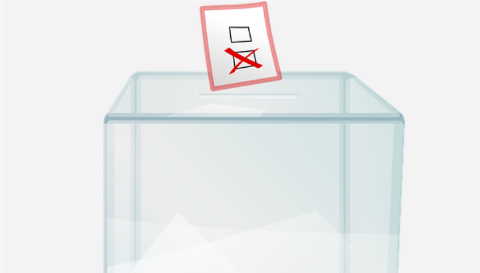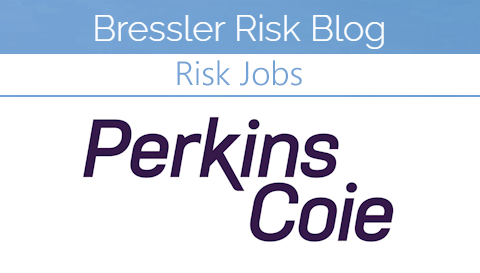
Former President of the Association of Professional Responsibility Lawyers, and current member of the ABA Standing Committee on Ethics and Professional Responsibility Brian Faughnan writes on: “Conflicts beyond lawyers” —
- “I have written in the past about the perhaps ‘unique’ approach that Tennessee has to the question of allowing non-consensual screens to cure conflicts arising from lateral movement of lawyers. That approach can make lateral movement of lawyers both less and more complicated.”
- “What a lot of lawyers and firms in Tennessee do not grasp, though, is that the same structure and approach under our rules can apply to staff when they move from working for one lawyer or law firm to another.”
- “A recent report about a Texas lawsuit where there is now the threat of disqualification after years of litigation because of an undisclosed conflict of interest stemming from a paralegal who moved between law firms has reminded me that I’ve been meaning to elaborate on the risks, complications, and further inequities of Tennessee’s approach when it is applied to people who are not lawyers.”
- “Tennessee’s RPC 1.10(c) generally allows the creation of a screen to cure imputed disqualification that would otherwise occur when a lawyer moves between firms. It includes certain requirements about making sure there has not already been any flow of information in addition to promptly establishing the screen. Importantly, it also requires that a notice be sent to the former client about what has caused the need for the screen and what actions have been taken.”
- “But Tennessee’s rules treat litigation differently from non-litigation matters such that the entire approach above is not available when: (a) the lawyer moving firms was ‘substantially involved’ in the representation of the former client; (b) that past representation involved litigation where the former client is directly adverse to a current client of the firm that lawyer is now joining; and (c) the litigation is still pending when the lawyer makes the switch.”
- “In those situations, the firm wanting to hire the lawyer can only do so if it is able to get full conflict waivers from both sets (former and current) of clients fighting with each other in the litigation or if it is willing to drop the current client.”
- “The additional wrinkle that gets added to the mix in Tennessee is that Comment [10a] to our RPC 1.10 states: ‘The requirements set forth in this rule include law clerks, paralegals, secretaries, and other staff employed by a firm, with due regard to their levels of responsibility in the matter.’”
- “Now what ‘with due regard to their levels of responsibility in the matter’ really means is subject to much debate. But that debate is not a widespread one because of the reality of things on the ground in Tennessee.”
Based on my experience, the reality in Tennessee is that a small minority of law firms grasp that this comment to RPC 1.10 means that they need to be concerned about the potential for being disqualified as a result of hiring paralegals and legal assistants who are working at other law firms. Within that small minority, a majority of firms will make necessary efforts to try to deal with the issue when the matter involves litigation and, thus, would require a full conflict waiver. Only a minority of the firms within that small minority of overall firms make the effort to provide the notice that is required in order comply fully with the rule when nonconsensual screening can provide a solution to avoid imputation.” - “The entire situation is one that certainly creates a looming risk for law firms in Tennessee. But it also raises questions about whether, as a matter of public policy, the kinds of barriers to employment of people without law licenses that the rule erects are really justifiable.”
And David Kluft asks: “If a judge is a crime victim, can a prosecutor who appears before the judge in other cases prosecute the judge’s case too?” —
- “An incarcerated individual in MN sent a letter threatening to kill a district court judge. When the state pressed charges, the defendant moved to disqualify. He argued that it was a conflict for the prosecutor to prosecute his case at the same time he was appearing before the judge/victim in other matters, because the prosecutor would be incentivized to be more vigorous than in other similar cases (as evidenced by a 21-month plea offer). The defendant was convicted and sentenced to 18 months.”
- “The MN Ct. of Appeals affirmed and disagreed there was a disqualifying conflict because (1) a victim is not the client, the state is, and the state’s interest does not conflict with the interest in prosecuting the case; (2) even assuming the prosecutor would handle the case more vigorously than others, this is not a ‘material limitation’ that conflicts with a duty the client because the states wants cases handled vigorously and justly; (3) a plea offer can’t sustain a conflict of interest claim, and if it could this plea offer was not crazy based on the egregiousness of the charge; and (4) there was no traditional conflict, such as a personal relationship with the judge or financial stake in the case.
- Decision: here.
“Uthmeier’s brief tenure at GrayRobinson raises potential ethical issues” —
- “When James Uthmeier took a leave of absence from Gov. Ron DeSantis’ administration so he could run the governor’s flailing presidential campaign in 2023, he also signed on with one of the state’s most powerful and politically connected law firms, which regularly lobbies the state of Florida on behalf of its clients.”
- “His time at the law firm was brief. What he did there and what he got paid are not publicly known. But Uthmeier’s stint at the private practice — reported for the first time here — raises ethical and legal questions about the Republican attorney now running for the job of Florida’s top prosecutor.”
- “Financial disclosure forms filed by Uthmeier show he worked for GrayRobinson from September 2023 to January 2024. The law firm’s lobbying clients include Meta Platforms, Walt Disney World and Uber, and GrayRobinson also has provided legal services to the state, racking up more than $140 million in billings over the last five years.”
- “Uthmeier returned to his job as DeSantis’ chief of staff after the GOP governor suspended his presidential campaign in early 2024 following a resounding defeat by Donald Trump in the Iowa caucus. DeSantis this year appointed Uthmeier to fill the remaining term of former Attorney General Ashley Moody, whom he’d appointed to the U.S. Senate.”
- “This revolving-door arrangement between the state’s top office and a high-powered law firm that lobbies for its clients in Tallahassee and has made millions doing business with the state opens a gate to potential conflicts of interest, political experts said. More broadly, it illustrates powerfully the incestuous nature of politics and influence in Florida, where the lines between public servants and special interests are often blurred.”
- “Those possibilities are magnified as Uthmeier now campaigns for attorney general in the 2026 election and has become a key figure in the Hope Florida scandal. One of GrayRobinson’s longtime clients is Centene, a national healthcare provider whose $67 million Medicaid settlement is at the center of that controversy.”
- “As the state’s top criminal prosecutor and a member of the Florida Cabinet, which along with the governor votes on land deals, insurance regulation and other state business, Uthmeier could have a conflict in cases or business involving GrayRobinson or its clients, experts said. And if his employment at the law firm was an arrangement made with the governor’s presidential campaign, there could be a breach of election laws.”
- “But there are no clear guidelines restricting state employees from going to a private law firm and then back on the public payroll.”
- “‘This is something that’s done all the time because the Florida Bar and Supreme Court never said anything critical about it,’ said Bob Jarvis, a law professor at Nova Southeastern University. ‘That’s the problem here. The lines are very messy and very blurry.’”
- “More than a year later, it is still not clear what Uthmeier did while at GrayRobinson or how he landed the job. He hasn’t answered repeated requests for comment, and neither has Dean Cannon, the former Republican Speaker of the House who currently runs GrayRobinson. The firm’s PAC, however, has donated $3,000 to Uthmeier’s 2026 campaign.”
- “GrayRobinson was no doubt reaping ‘the ancillary benefits of having someone listed on their law firm roster who was working on the campaign of a rising star at the time,’ agreed Aubrey Jewett, a political science professor at the University of Central Florida.”
- “Whether it is good for the public, from both an economic and ethical standpoint, depends on whether Uthmeier participated in cases for GrayRobinson clients doing business with the state and then continued to help them once he was back in the governor’s office, Jewett said.”
- “But the financial disclosure forms that shows Uthmeier worked for GrayRobinson do not require him to list any cases or clients, making it hard to determine if he had conflicts.”
- “‘To the extent that the current Attorney General worked for a lobbying firm raises ethical constraints about what companies he interacts with as attorney general,’ said Gregory Koger, a political science professor at the University of Miami. ‘He should be careful to avoid making decisions about those clients the firm represented during that time he worked there.’”
- “Theoretically Uthmeier could have a full-time job with the law firm and work on a campaign on the side, Koger said. ‘But if he is drawing a salary and not doing any work for GrayRobinson that could be construed as a campaign contribution,’ he added.”
- “Around the same time Uthmeier began to work for GrayRobinson, the firm was engaged to represent DeSantis in a lawsuit filed by Monique Worrell, a Democrat whom DeSantis removed from the state attorney’s job in Orange and Osceola counties. He claimed she was failing to do her job. She denied the charges and was re-elected last year. Uthmeier has been relentless in his criticism of her performance ever since.”
- “Moreover, Uthmeier had financial connections to each of the opposing sides in the Medicaid settlement agreement with Centene — to the state of Florida, as the governor’s top staffer for policy and administrative decisions, and to the company, through its employment of GrayRobinson.”
- “Records show Uthmeier set up meetings between state officials and lawyers for Centene in 2022, about a year before he began working for GrayRobinson. Those negotiations broke off in 2023 after the state fired the outside law firm it had originally hired to negotiate the original agreement.”
- “Negotiations resumed in 2024 after Uthmeier came back to the state and concluded that September, with the state agreeing to give $10 million of that settlement money to Hope Florida.”
- “Uthmeier has denied playing any role in the settlement agreement negotiations but has said as far as he could tell it all looked legal. He also has defended spending the money fighting the medical marijuana initiative as in the state’s best interests. DeSantis’ committee spent millions of dollars on advertising and the amendment fell short of the 60% approval it needed to pass.”







